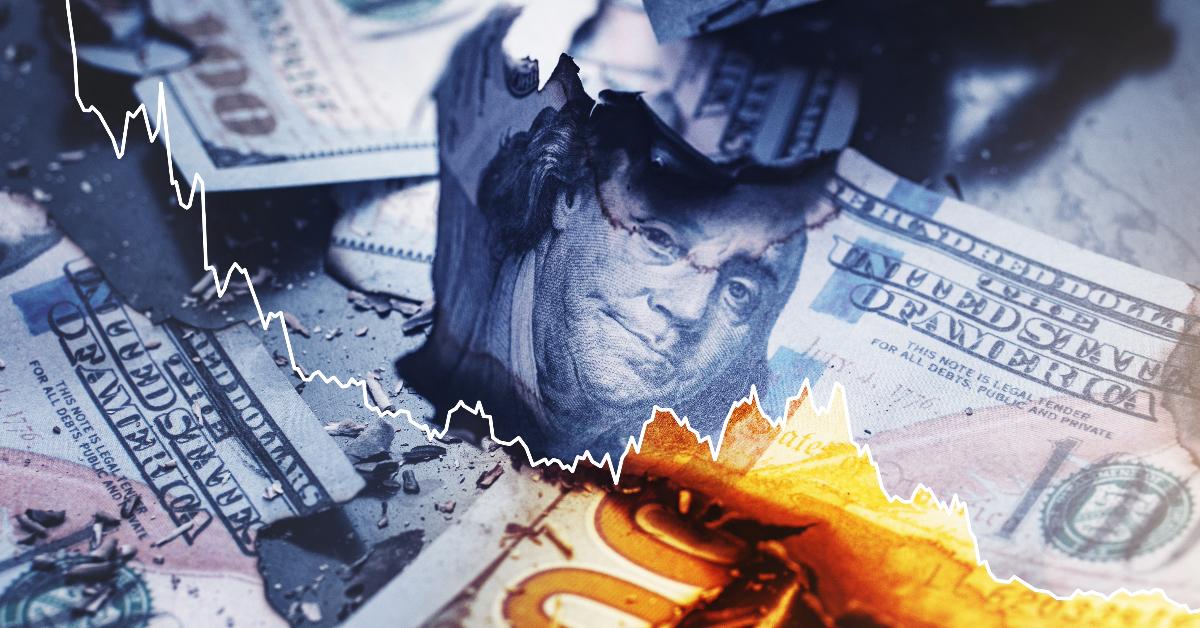On August 16, 2023, the Federal Reserve expressed concern about the pace of inflation, saying future rate hikes could be necessary if conditions do not change. Currently, the federal funds target rate is between 5.25 and 5.50 percent, the highest level in more than twenty-two years.
Mainstream economists and journalists think about inflation in terms of consumer prices. To counter a general increase in prices, they believe, the central bank should raise interest rates, which supposedly weakens the demand for goods and services and slows the growth rate of the Consumer Price Index.
But is inflation, at its core, really about the prices of goods and services? Examining the origin of inflation is an essential first step toward answering this question.
The Essence of Inflation
Inflation may be better defined as embezzlement by means of increases in the money supply.
Historically, inflation occurred when a country’s ruler, such as a king, falsified the content of gold coins by mixing base metals into them and returning the diluted coins to the citizens. The ruler could now mint more coins and pocket the surplus for his own use. What was now passing as a pure gold coin was in fact a diluted gold coin
Through coin inflation, a ruler could exchange nothing for something. This strategy, however, exploited the resources of citizens: with more coins in circulation, prices had to increase in terms of coins.
Originally, paper money was not regarded as money but merely a representative of gold. Paper certificates were claims on gold stored in banks and could be converted into gold coins whenever necessary. But people found it convenient to exchange paper for goods and services, so the certificates came to be treated as money.
Accepting paper certificates as a medium of exchange opens the door to fraud. Banks may be tempted to boost profits by lending certificates not backed by gold. Such an inflation of receipts, without a corresponding increase in the supply of gold, can lead to a general increase in prices in terms of receipts. Like those who use counterfeit money, those who use unbacked receipts acquire goods without having contributed to the production of goods.
In the modern world, money, at least as a physical currency, is no longer gold but coins and notes; hence, inflation can be caused by an increase in the stock of coins and notes. Since the price of a good is the amount of money per unit of a good, it follows that an increase in the money supply will result in an increase in prices.
Increasing the money supply undermines wealth generation and encourages people to spend their savings by giving the illusion of a growing economy. When savings eventually stagnate or decline, the money supply, no matter how large, can no longer sustain this illusion.
The central bank increases the money supply whenever it buys assets and lends money to the government, or allows commercial banks, through the fractional reserve system, to lend out greater proportions of customer deposits.
Interest Rate Policy Falsifies Market Signals
In a free market, interest rate fluctuations mirror changes in consumer preferences toward present versus future consumption. If consumers lower their preferences for present consumption, market interest rates should decline. Conversely, if consumers raise their preferences for present consumption, market interest rates should increase.
Business owners watch for interest rate signals to decide when to allocate more resources for the future production of consumer goods. But if the central bank manipulates market interest rates, then it falsifies these instructions from consumers to businesses. As a result, businesses are not in line with consumer wishes, and profits are compromised.
Tight Interest Rate Policy versus the Closure of Monetary Loopholes
Tight interest rate policies restrain economic bubbles, which emerge from low interest rate policies that encourage banks to lend money not backed by savings. Easy money policies divert money from wealth generators toward speculative bubbles, while a tightening of the policy tends to arrest this trend and set an economic bust into motion. The greater the proportion of all economic activities that are bubbles, the larger the bust will be.
Leaving more wealth at the disposal of wealth generators is a good thing, but when the central bank raises interest rates, it tampers with financial markets and falsifies interest rate signals. This in turn raises the likelihood that businesses will misallocate resources, weakening wealth generation and contributing to the severity and length of an economic bust.
Contrast this with a policy that curbs the expansion of the money supply. This would keep wealth in the hands of wealth generators while encouraging them to save. The growth of savings would in turn likely mitigate any economic slump.
By thinking of inflation as an increase in prices, Fed policymakers attack the symptoms rather than the causes of inflation, thereby making things much worse. If, however, they were to think of inflation as an increase in the money supply, then to counter inflation would mean curbing that increase and, as a consequence, curbing the impoverishment of wealth generators.
























